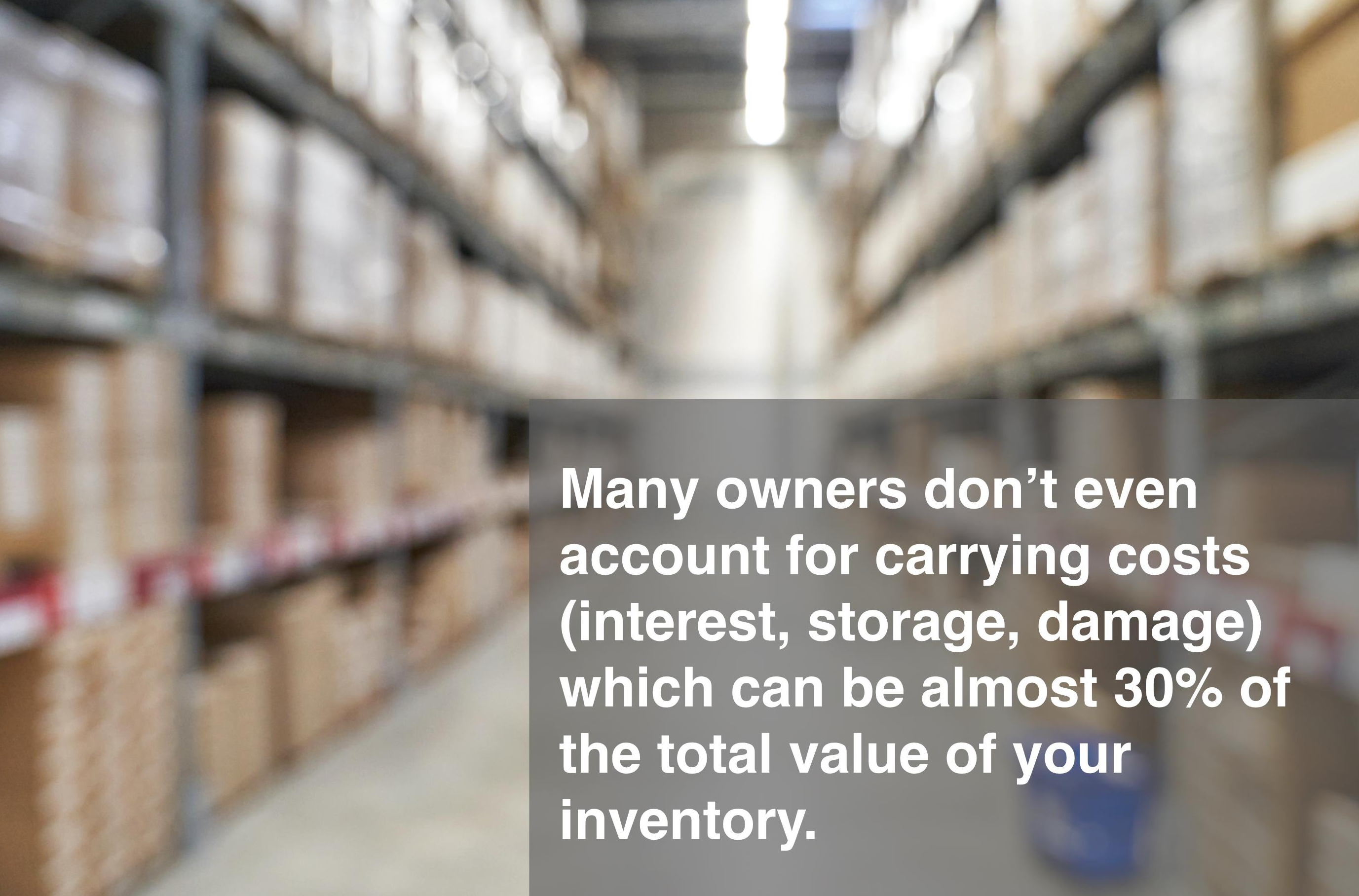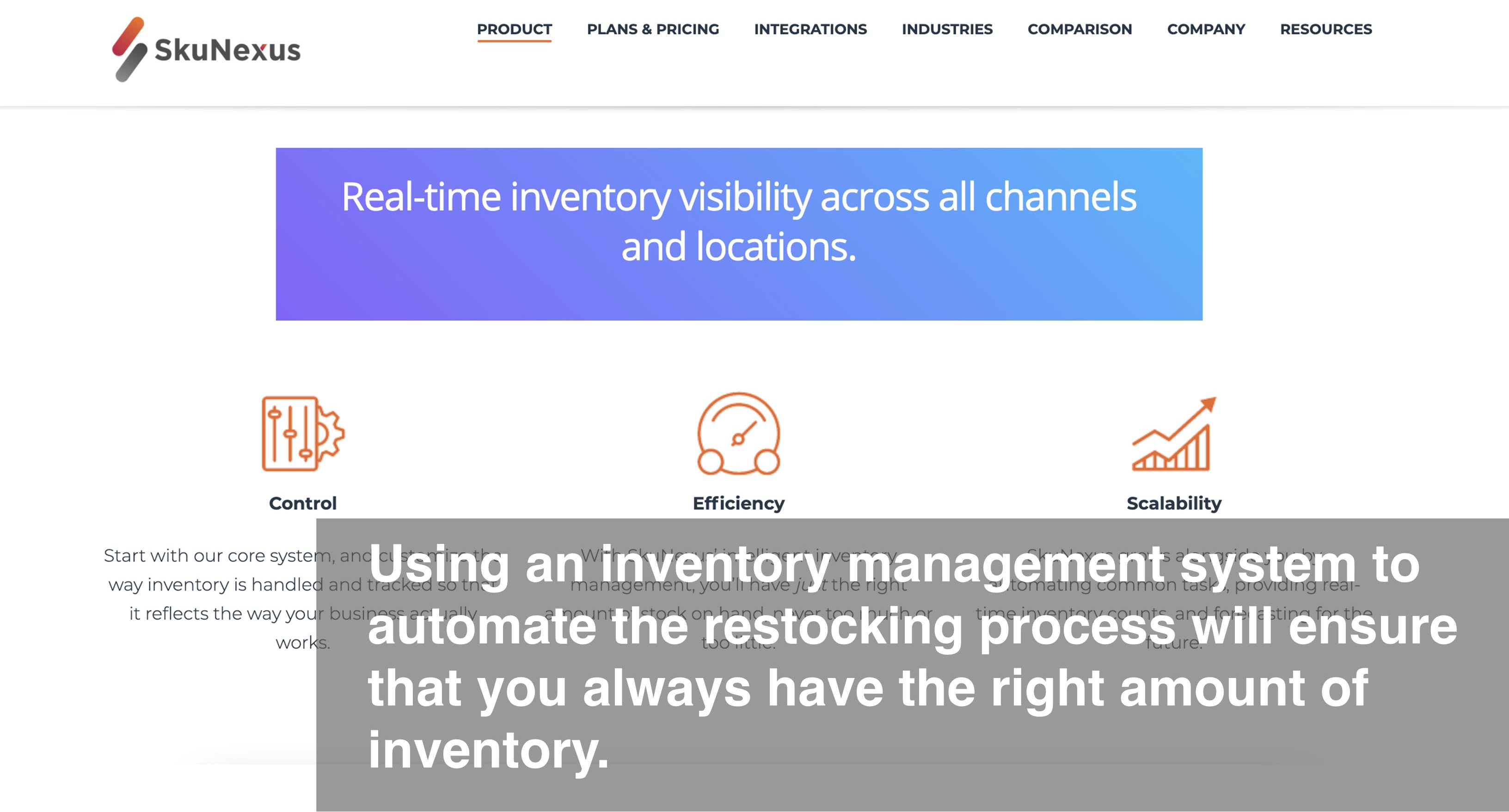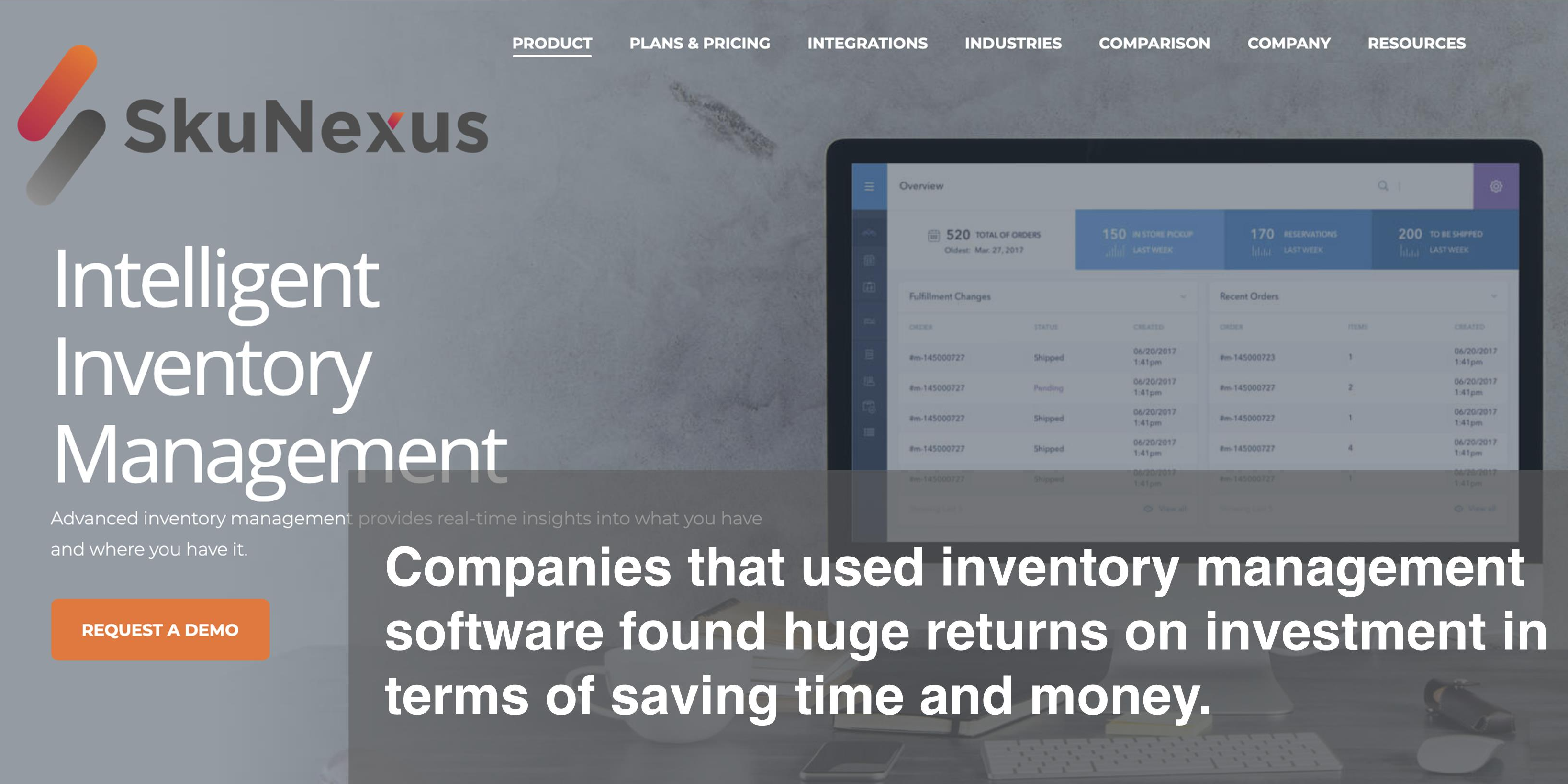edited by Catalina Del Castillo
It seems like logistics and trading has been at the center of controversy in the past 10 months. From toilet paper shortages to the Suez Canal blockage of 12% of global trade, CNBC explains “Each day of blockage disrupts more than $9 billion worth of goods, according to Lloyd’s List, which translates to about $400 million per hour. “ Although this may be a red flag to reconsider inventory orders, it’s important to mention that these are rare situations. It's usually less risky to have low inventory than to have excess inventory.

Inventory is one of the largest investments a company can make. Many owners don’t even account for carrying costs (interest, storage, damage) which can be almost 30% of the total value of your inventory. This is exactly why now is the best time to evaluate how and why proactive planning inventory is crucial for smoother logistics, operations, and lower costs.
How can you reduce inventory costs?
Here's five ways to cut down on inventory costs.
3. Drop Ship
Just Enough Inventory

There is one extremely important inventory management technique that can help reduce inventory costs - “just enough inventory.” This means keeping exactly the amount of inventory that you need, no surplus. While this can make you walk the fine line between having excess inventory and not enough inventory, there is a very useful tool that can help predict or report demand forecasting. Looking at the sales data over the past few years, factoring in the season and geography, and what channels customers most often purchased will be key factors in determining your forecast on orders.
Learning about your customers patterns and your past transactions will allow you to make smarter decisions on current and future inventory amounts.
Just in time Inventory (JIT)
Another useful method to reduce inventory costs is “just in time inventory.” This usually applies to large companies that make their own products and only need raw materials to assemble on site and send for fulfillment. However, even small businesses can use this method with proper order time management tools that consider three important aspects.
- Ordering bulks that have been adjusted yearly- in same and consistent amounts.
- With products that are fixed – it’s easy to see the order pattern and make timely orders.
- Using tools when inventory is at a certain level to re-order.
These helpful tools can work when businesses understand high and low demands at certain seasons and when strong management systems report purchasing patterns that may allow you to make smart decisions ahead of time.
These helpful tools can work when businesses understand high and low demands at certain seasons and when strong management systems report purchasing patterns that may allow you to make smart decisions ahead of time.

If you are ordering from overseas there is always going to be a risk, but if you use the forecast tool and you are proactive in the timing of orders, this will reduce your carrying costs because nothing is sitting on shelves in the warehouse. Another part to consider is reaching out to suppliers, who you may be able to negotiate at a slightly higher price per unit for a smaller number of units. Finding other buyers who need the same products and making a bulk purchase with your combined resources will help keep small amounts of inventory in your warehouse.
Drop Ship
Drop shipping is when the retailer does not keep inventory in its warehouse at all. When an order comes in, it is pushed to the vendor or manufacturer. The manufacturer then ships the order directly to the customer which in result, can reduce inventory costs because nothing is sitting in your warehouse. Having less in your warehouse will also offer more assorted product offerings. Drop shipping is an efficient method for reducing losses from overstocks because it provides another channel to liquidate excess inventory. Potentially, you can save a lot of money especially since latest reports showed that in the last 3 years, overstocks accounts can count for roughly $362.1 billion in retail losses annually.
Use Technology
Using an inventory management system to automate the restocking process will ensure that you will always have the right amount of inventory. In a recent study, researchers compared cost between companies that used inventory management software and those who didn’t and the results were staggering- Of the 22 percent that did compared to the 78 percent of SMBs that didn’t, they found huge returns on investment in terms of saving time and money, while 39 percent saved five hours or more in processing and logistics.
Management software will help your company grow faster by pulling detailed reports on sales performance so you can decide the next step to generate more revenue and maintain “just enough” or “just in time” inventory with real-time updates on stock movements across all sales channels.

Using SkuNexus, a fully customizable commerce operations platform you can count on very user friendly technology that will help you implement change in your warehouse processes and lead a reduction in overall inventory costs.
Train Employees
As much as you plan on using inventory management techniques and invest in inventory management software, it is all for naught if you do not invest in training employees on how to use and implement it. Untrained employees will, inevitably, lack the motivation and knowledge to use the resource properly, which leads to waste.
Hiring someone can also cost up to 30% of the job’s salary which for an employee that makes $40,000 a year could equal around $12,000. However, training existing employees might not only cost a few hundred dollars, increase employee satisfaction in career development but will also take less time. Proper training will motivate your employees, allow them to be more capable at their jobs, and will reduce the time it takes to take inventory.
Click here to see for yourself!










